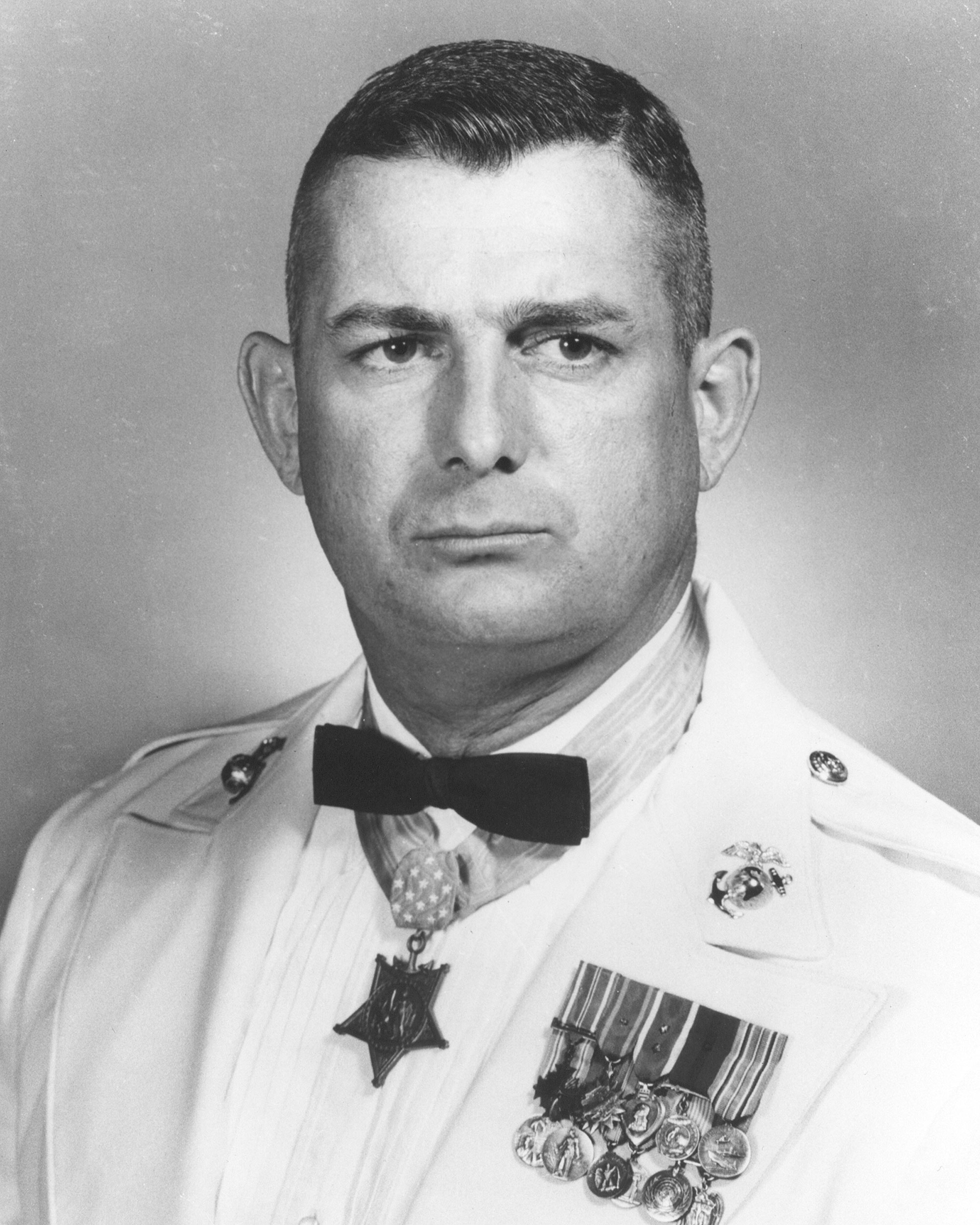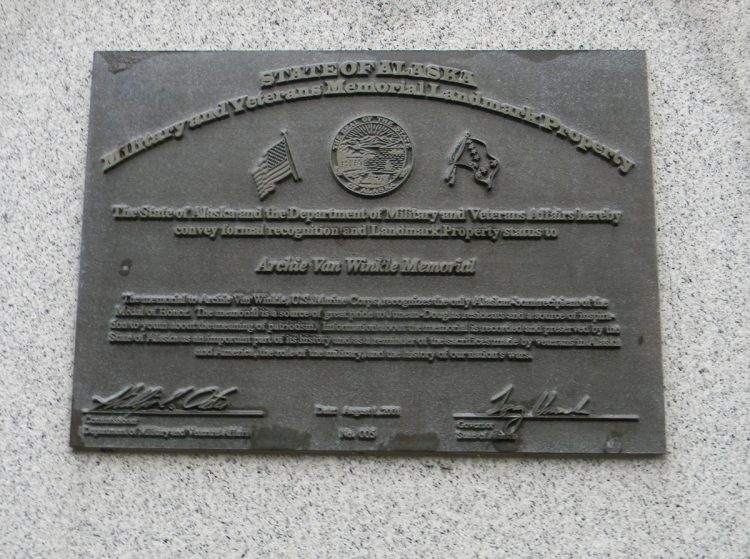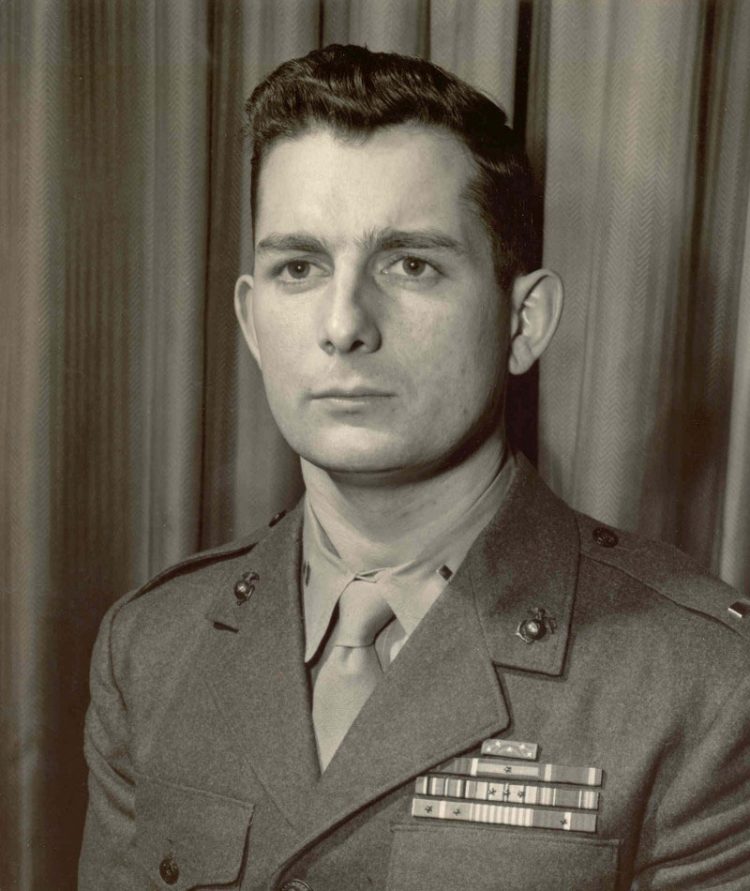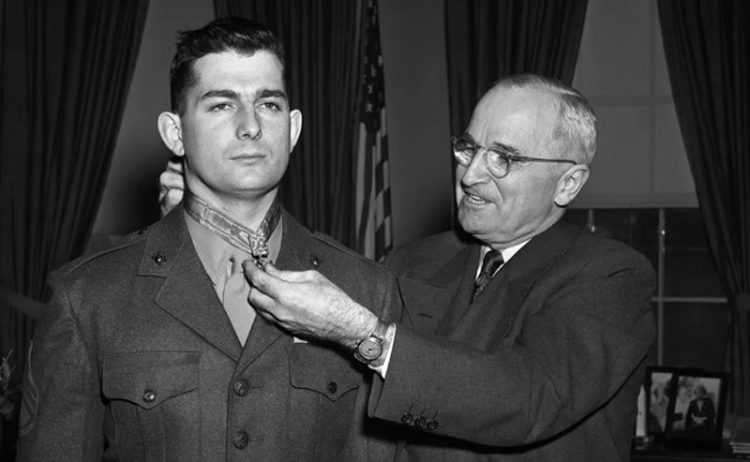Highest honor Highest honor Highest honor
Alaskan-born Archie Van Winkle received the armed forces' highest military decoration in 1951.
By Jon Marmor | Photos courtesy of Congressional Medal of Honor Society | July 31, 2025

Every summer, monster-sized cruise ships ply the waters of Southeast Alaska, taking time to dock at Juneau, the charming capital of the Last Frontier. Nearly 2 million passengers disembark to stretch their legs and explore the town of 32,000 shopping for souvenirs, grabbing a bite and passing by a memorial honoring a University of Washington graduate who was a war hero.

On October 1, 1997, Archie Van Winkle was memorialized as Alaska’s only Medal of Honor recipient with a large granite statue in Juneau.
That would be Archie Van Winkle, ’61. Born in Juneau, Van Winkle went to college—twice—at the University of Washington. But he is best known for being the only Medal of Honor recipient from the state of Alaska. His name is one of nine etched into the UW’s Medal of Honor Memorial at the end of Memorial Drive on the UW Seattle campus, just a few steps from the flagpole overlooking Red Square.
During the Korean War on Nov. 2, 1950, near Sudong, Korea, Van Winkle, a staff sergeant in the U.S. Marine Reserves, risked his life and earned the most prestigious honor granted to a member of the U.S. armed forces. As a platoon sergeant in Company B, he rallied his troops after “a fanatical and numerically superior enemy force penetrated the center of the line under cover of darkness and pinned down the platoon with a devastating barrage of deadly automatics-weapons fire,” his Medal of Honor inscription says. “Van Winkle boldly spearheaded a determined attack through withering fire against hostile frontal positions, and though he and all the others with him were wounded, succeeded in enabling the platoon to gain the fire superiority and the opportunity to reorganize.
“Realizing that the left flank squad was isolated from the rest of the unit, he rushed through 40 yards of fierce enemy fire to reunite his troops despite an elbow wound which rendered one of his arms totally useless.”
Van Winkle was wounded a second time when he was hit in the chest from a hand grenade, suffering serious and painful wounds, but he continued to shout orders and encouragement to his depleted and battered platoon. He was finally carried away unconscious from shock and the loss of blood. His bravery and leadership in the face of astronomical odds “served to inspire all who observed his heroic efforts to repose the enemy attack.”
Van Winkle was presented the Medal of Honor by President Harry S. Truman in the White House on Feb. 6, 1951.
- In 2001, Van Winkle’s memorial became an official Alaska historial landmark.
- Originally from Alaska, Van Winkle’s family moved to Snohomish County when he was young. He graduated from Darrington High School before studying physical education at the UW.
- President Harry S. Truman presents Archie Van Winkle the Medal of Honor on Feb. 6, 1951.


